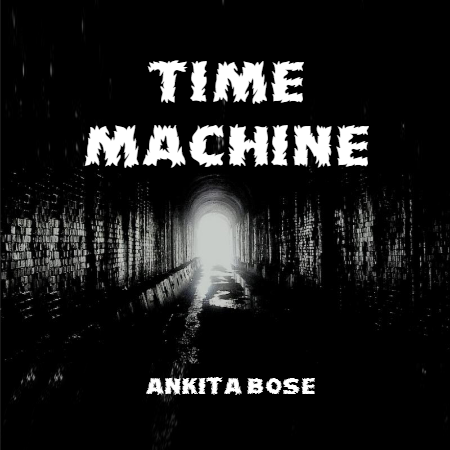Mr. Biswas walked carelessly, engrossed in deep thought. He was limping, but only a little. His right knee pained and he couldn’t figure out a reason for it. The fat spectacles rested over his grim eyes and crooked eyebrow. His shabby kurta had strings peeking out of its edges and the unkempt white pajamas had stained to give it a tinge of yellow. The moon shone on the oily tip of his nose while the sound of crickets had already settled in the night. The grass was still wet from the afternoon rain and petrichor filled the air.
His mind replayed the political debate which he was a part of just a while back, seated at the Indian Coffee House in Kolkata with fellow colleagues. The caffeine intake at the Indian Coffee House had relaxed his nerves and made him feel dizzy. He had just structured a relevant argument which he planned to put forward in tomorrow’s coffee house session, when something stirred him.
He suddenly became alert, looking for eyes lurking in the darkness. He felt that an onlooker monitored all his activities. He felt being watched, although his vision couldn’t detect any potential threat when his eyes quickly scanned the surrounding.
Such anxiety was a common occurrence to Mr.Biswas. He knew that the police were waiting for an opportunity to nab his intellectual contributions to the Naxalite movement which gained momentum in the city. He believed in the rights of the poor peasantry and actively participated in the revolution which demanded their emancipation. This angered the state and he knew that they could unleash their power any time they chose to.
However, this time the anxiety felt real. The desolate field made him shiver a little. He continued walking, pacing his steps. He looked back again. He was no longer alone. There was a man dressed in khaki pants and white shirt who seemed to have emerged from nowhere.
Anxiously, he wiped the little droplets of sweat on his forehead and started taking longer steps. Soon, the stalker had caught up to him. The distance between them was gradually decreasing and Mr. Biswas had still a long stretch to cover before he could reach the end of the field.
When the distance shortened to less than a foot, Mr. Biswas stopped to turn his head. The stalker had stopped too. Their eyes met. The cold stare in his eyes spoke of impending death. Mr. Biswas was convinced that his struggles would be ceased tonight. It was time for him to join his fellow comrades whose names had been etched as examples of altruism.
The man smirked a little, pulled out a gun from his right pocket and pointed it directly at Mr. Biswas.
“You bloody educated traitors! You deserve to die!” the man screamed exasperatedly.
Mr. Biswas stood there motionless and waited for death to pierce him. The bullet was shot from the gun and in the few moments that it took to hit Mr. Biswas’ chest, he could hear the cracking sound pierce through the buzzing silence.
Part 2:
Usha hurriedly ran towards her father’s room when the sound of breaking glass and a distinctive thud had disturbed her chores in the kitchen. Her father did not like to be disturbed at this hour. He is usually sitting in a corner, sipping whiskey from his glass in the evening.
When she entered the room, she screamed in shock. Her father had fallen on the floor and his head hit the whiskey glass which lay shattered amid a pool of blood that surrounded him.
She sat beside her father trying to help him get up.
“Baba! How did this happen?” She sobbed.
“Long live the revolution!” Mr. Biswas screamed before he was unconscious.
Part 3:
In the hospital, Usha stood behind the glass windows looking at his father sleeping peacefully. Transparent tubes went through his nostrils and arms. She was weeping under the breath, cursing herself for not being careful with her father’s schizophrenia.
Her father, a retired History professor of 65, was diagnosed with the hallucinatory disease two years back. Since then, all the evenings at the Biswas residence would be alive with scenes from the history. Usha has seen Mughal battles, the world wars, and the fascist regime- all in her two- bedroom flat in a posh locality of South Kolkata. But she never thought that it could take such a deadly turn.
She reminisced her childhood. Her father with his nose dug in a fat book while 5-year-old Usha carelessly wandered around him in her little red frock. She had to pull the book from his father’s face to strike a conversation.
“Baba, I want a time machine for my birthday!”
Her father laughed loudly before stroking her head.
“Why, princess?” he asked lovingly.
“Because I want to be Nur Jahan and slay enemies,” she said looking up at the ceiling fan.
“I will try!” Mr. Biswas convincingly promised before he went back to his book.
Usha no longer holds the desire to live beyond her time. Her father’s illness has shattered her childhood illusion. Now she understands the painful repercussions of breaking the shackles of time. Time, which is greater than all forces must not be travelled, it must be allowed to flow like rivulets down into the ocean of life. She realises the futility of a time machine.





